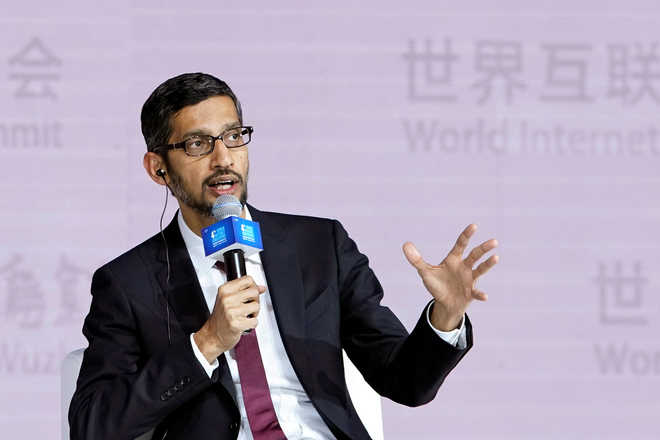The fourth World Internet Conference, also known as the “Wuzhen Summit”, concluded Tuesday, 5 December 2017, in Wuzhen town of Zhejiang province after three days of discussions and exhibitions of cutting-edge internet products.
The World Internet Conference in Wuzhen is an annual gathering of internet officials and internet company executives as well as administrators from developing countries. The previous three conferences in 2014, 2015 and 2016 were not attended by top US tech executives, but this year, leaders of IBM, Oracle, and Google participated in the event, along with the CEOs of well-known Chinese internet giants such as Baidu, Alibaba, Tencent, Huawei and Xiaomi.
The conference was also addressed by Chinese President Xi Jinping and Apple CEO Tim Cook. In his written congratulatory address, Xi said that online developments were raising many new challenges to sovereignty and security, and China was “willing to work with the international community to respect cyberspace sovereignty and promote partnerships”. Apple chief executive Cook’s presence indicated the importance of the Chinese market for the iPhone maker, even though Apple’s market share of China’s smartphone market is shrinking.
Will Google Return to China?
Google’s India-born CEO Sundar Pichai made a strong case for the search giant’s return to China, saying it is already helping Chinese companies gain global access. Google was shut down in China in 2010 following a showdown with the government over censor policies. Since then Google, Gmail, Youtube and its other products are banned in the world’s second largest economy. “A lot of work Google does is to help Chinese companies”, the 45-year-old Google CEO, who has a BTech degree from IIT Kharagpur, said at the conference.
“Many small and medium-sized businesses in China take advantage of Google to get their products to many other countries outside of China,” Pichai told the meeting, Hong Kong-based South China Morning Post reported. After the ban, Google subsequently shifted its operations to Hong Kong. In its absence, Chinese firms like Tencent, Alibaba, Baidu and JD.com emerged most powerful players in China and abroad. Google and its products can be accessed in China through Virtual Private Networks (VPNs) over which Beijing has stepped up a crackdown in recent times. Apple this year agreed to the Chinese government’s requests to remove dozens of virtual private network (VPN) apps services that allow Chinese users to access blocked websites from its local App Store. Skype, the calling app, was removed from its mainland App Store this autumn. Pichai’s attendance at the state sponsored internet meeting came after China recently lifted the ban on Google translation services.
Besides Google, a number of global social media platforms like Facebook and Twitter remain banned in China over fears that their presence would open-up to millions of China’s social media users marginalising the official media. In his address, Cook said “the theme of this conference – developing a digital economy for openness and shared benefits – is a vision we at Apple share”, adding that Apple “is proud to have worked alongside many of our partners in China to help build a community that will join a common future in cyberspace”.
Info source: The Tribune, Image source: World Internet Conference
Zhejiang ranks fourth in GDP among Chinese provinces, and is positioned at the 2×4 slot within the G8x8. In 2015, it achieved a GDP of 549.8 billion € and a share of 5.9 percent of the Chinese total. Its GDP was higher than that of Argentina and Sweden, but slightly lower than that of Saudi Arabia.
